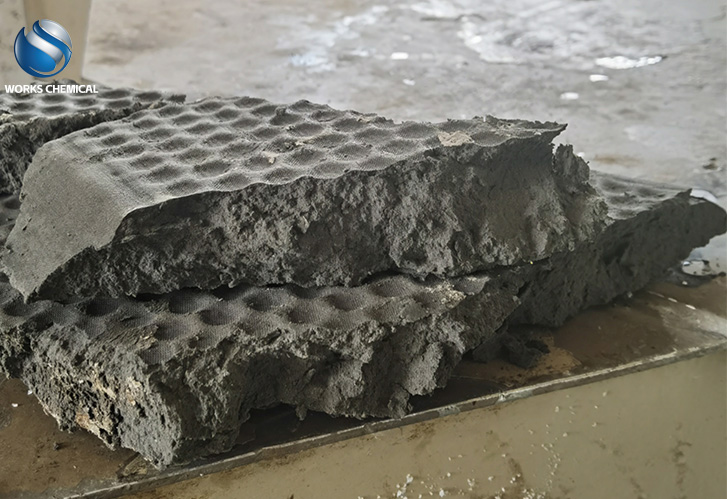
Hello everyone, today the technical engineer of Works Chemical New Materials will talk to you about the main functions and applicable industries of sludge conditioners. Sludge conditioner can promote the degradation and stability of sludge, improve its resource utilization rate, improve treatment efficiency, and reduce treatment costs. Simultaneously achieving the goal of reducing environmental impact. So, specifically, what can sludge conditioners do in practice?

1、 The main functions of sludge conditioner are:
1. Promote the degradation and stability of sludge
Sludge contains a large amount of organic matter, which, if not degraded, can easily lead to problems such as decay, fermentation, and odor. The addition of sludge conditioner can change the physical, chemical, and microbial characteristics of sludge, accelerate the degradation and stabilization process of organic matter, and thus reduce the generation of odor and decay phenomena.
2. Effectively reducing the moisture content of sludge
The moisture content in sludge can be reduced to 35-55%, resulting in good weight reduction effect. Improve the mud pressing efficiency of the plate and frame filter press by 100-500%, greatly shortening the mud pressing cycle.
3. Improve the resource utilization rate of sludge (save treatment costs)
Sludge contains rich organic matter, nutrients, and trace elements. If effectively utilized, it can not only reduce resource waste but also achieve resource regeneration and utilization.
4. Improve the availability and stability of sludge
By adding an appropriate amount of sludge conditioner, the physical properties of sludge can be improved, its availability and stability can be improved, and soil improvement and agricultural application can be better carried out, promoting the growth and development of crops.
2、 Sludge conditioners are widely used in the following fields:
1. Urban sewage treatment plants: Urban sewage treatment plants produce a large amount of sludge, and sludge conditioners can improve sludge dewatering efficiency and reduce treatment costs.
2. Industrial sludge treatment: sludge generated in industries such as petroleum, chemical, pharmaceutical, and papermaking.
3. Agriculture and landscaping: Organic waste generated from livestock and poultry farming, orchards, etc.
4. Mines: Sludge generated from mining tailings, coal washing sludge, etc.
3、 Summary:
Finally, sludge conditioners can also improve the treatment efficiency of sludge and reduce treatment costs. In addition, sludge conditioners can also improve the coagulation and filtration properties of sludge, promote solid-liquid separation, reduce energy consumption and treatment time during the treatment process, and improve treatment efficiency. In future articles, we will provide you with more professional knowledge and practical information about sludge conditioners. Stay tuned.